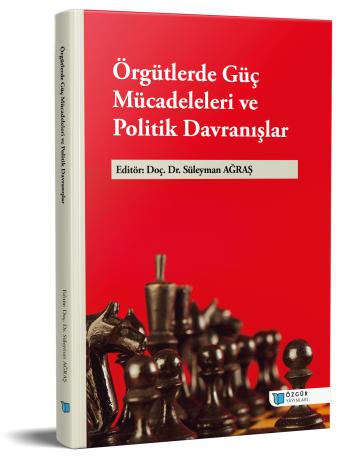
Perceived Organizational Policy and Organizational Alienation
Chapter from the book:
Ağraş,
S.
(ed.)
2025.
Power Struggles and Political Behaviours in Organizations.
Synopsis
People by nature live together with others to satisfy their desires and needs and they constantly struggle to gain superiority over others and fulfil their desires. This struggle also exists in organizations, which are units where work activities are carried out to achieve certain goals. Employees at different hierarchical levels within organizations may disregard organizational goals and interests, acting in pursuit of personal goals by looking after their own interests or those of the group to which they belong. The desire to gain power which refers to the ability to influence others to behave in a desired manner and to exert influence over them, gives rise to political behaviour within the organization. Indeed, political behaviour related to gaining power or increasing one's power shapes a subjective assessment of the organization as a whole and the perception of organizational politics, which represents the dark side of the organization. Furthermore, technological developments accompanying globalization and industrialization bring mechanization to organizations, while the incompatibility between organizational goals and the goals and interests of employees encourages political behaviour within the organization. Organizational relationships shaped by hierarchical structures and bureaucratic formations cause employees to feel psychologically isolated, meaningless, powerless and uncomfortable. The effects of this situation defined in the literature as alienation are quite significant from an organizational perspective. For this reason, this study will focus on the relationship between organizational policy perception and organizational alienation, which is a topic of great importance for organizations, concerns human resources rather than physical and material elements.

